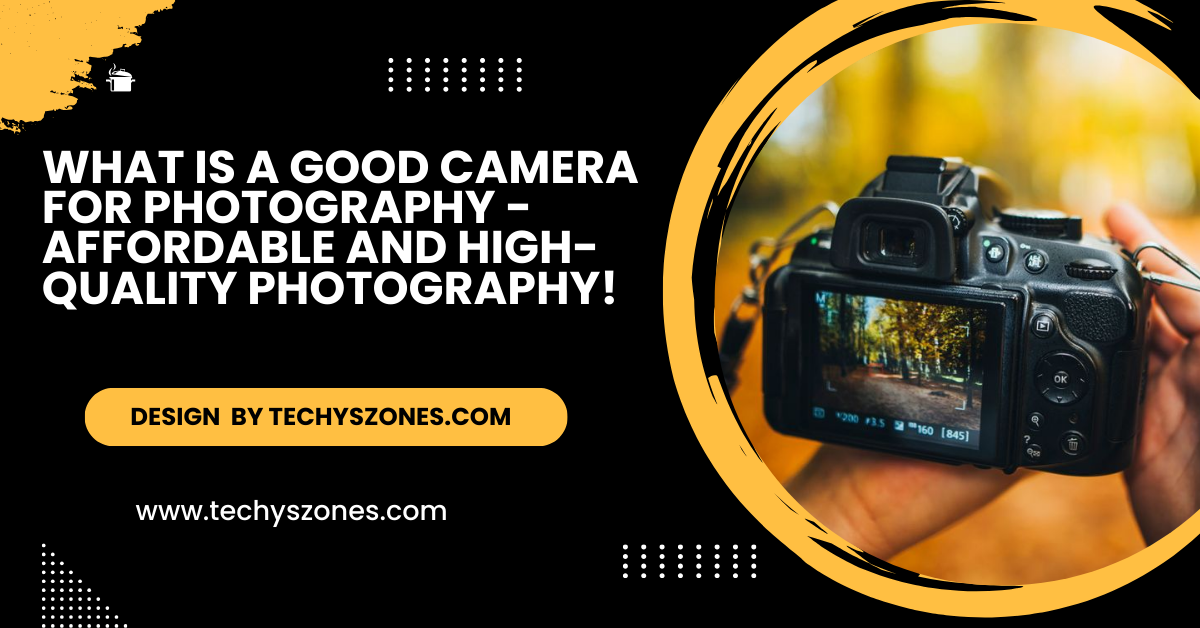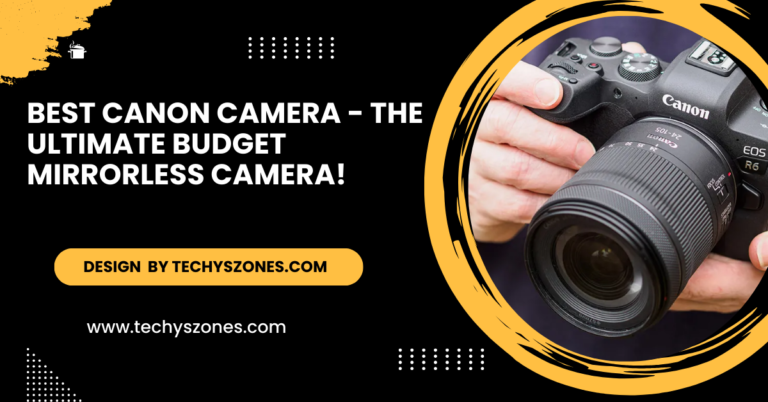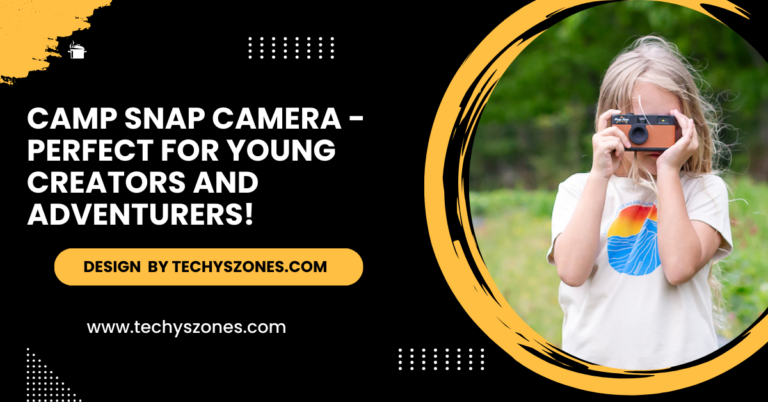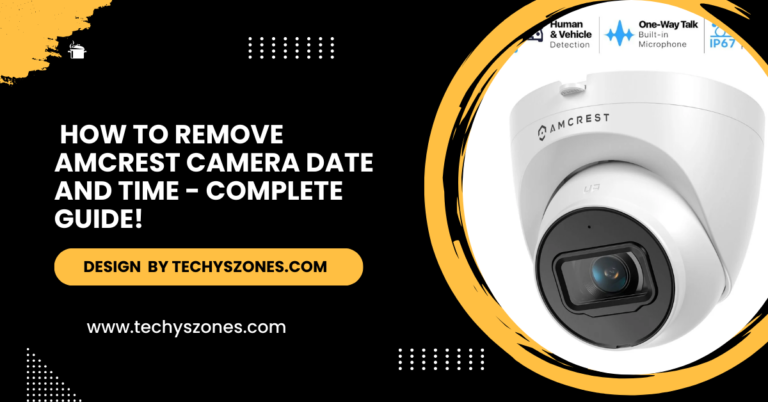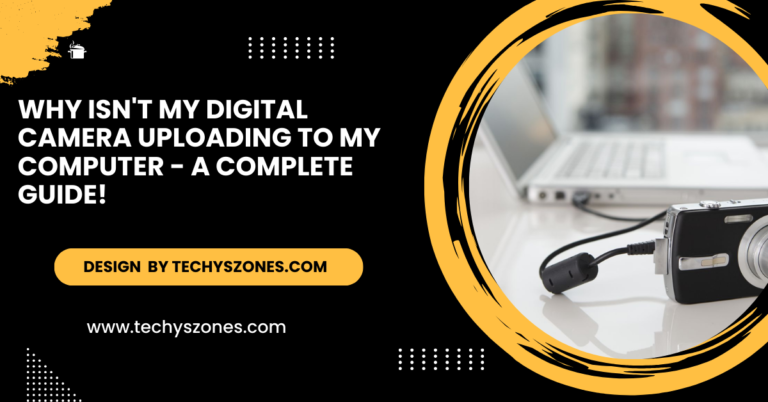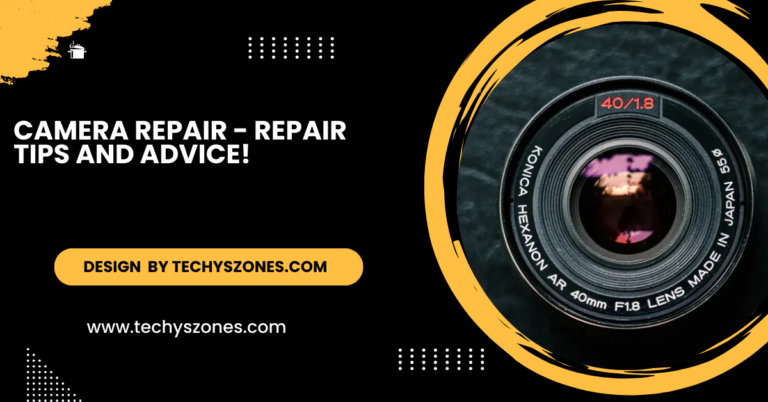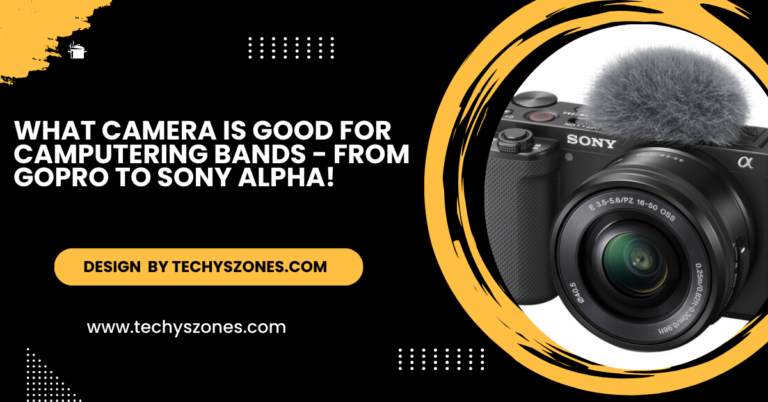What Is A Good Camera For Photography – Affordable And High-Quality Photography!
The best camera for photography varies by skill level. Beginners may prefer the Nikon D3500, while professionals often choose the Canon EOS 5D Mark IV or Sony A7 III.
In this article, we’ll explore the best cameras for photography, from entry-level models to advanced ones, helping you make an informed decision based on your needs, preferences, and budget.
Factors to Consider When Choosing a Camera for Photography:
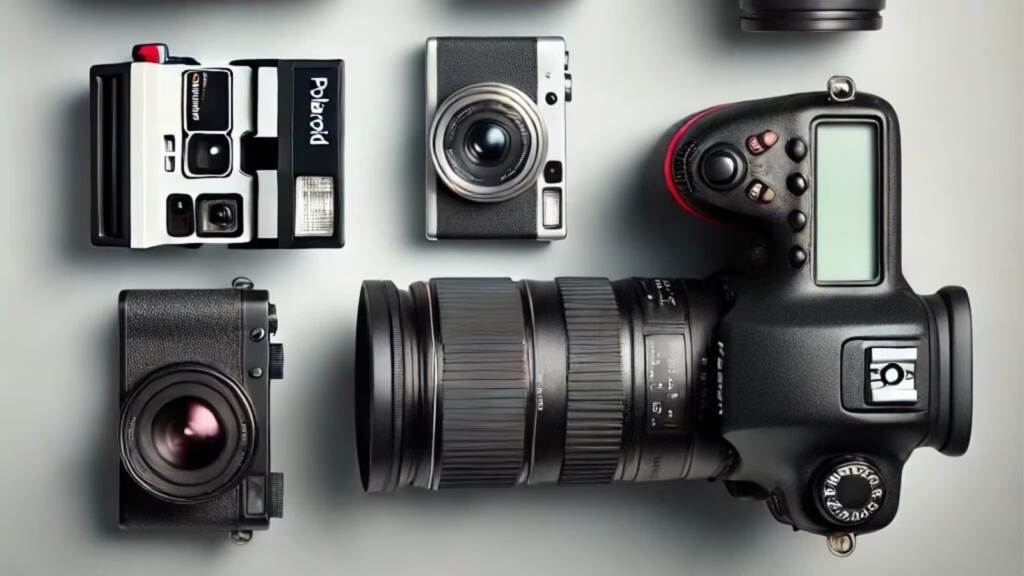
Before diving into specific camera models, it’s essential to understand the key factors that affect your decision:
- Sensor Size: The sensor size plays a significant role in the quality of your images. Larger sensors, such as full-frame sensors, capture more light, which improves image quality, especially in low-light conditions. Cameras with smaller sensors, like APS-C or Micro Four Thirds, are more compact and affordable but may not perform as well in low light.
- Resolution (Megapixels): While megapixels matter, they are not the only factor that determines image quality. A camera with higher megapixels allows you to capture more detail, but if you don’t plan to print large photos or crop heavily, a lower megapixel count may suffice.
- Autofocus Performance: A camera’s autofocus system can make a huge difference, especially in fast-paced situations. Look for cameras with fast and accurate autofocus systems, especially if you’re shooting action, sports, or wildlife.
- Lens Compatibility: The lens you use is just as important as the camera body. Some cameras allow you to switch lenses, while others are fixed. A camera with interchangeable lenses gives you more creative freedom, as you can choose the lens that best suits your photography style.
- Video Capabilities: If you’re also interested in video, make sure the camera supports 4K or at least 1080p recording. Cameras that offer high-quality video can serve as both your photography and videography tool.
Best Cameras for Photography in 2024:
Here are some top-rated cameras across different categories:
Best DSLR Camera: Canon EOS 5D Mark IV
The Canon EOS 5D Mark IV is a favorite among professionals due to its exceptional image quality, fast autofocus, and versatile features. It features a 30.4MP full-frame sensor, making it perfect for capturing sharp, high-resolution images in a variety of lighting conditions. The camera also supports 4K video, making it an excellent choice for photographers who also want to capture high-quality videos.
Also Read: Do You Need To Keep Camera On Uf Online Classes – Camera-On Policy Explained!
Best Mirrorless Camera: Sony A7 III
The Sony A7 III is a mirrorless camera that’s known for its incredible autofocus, image quality, and compact design. With a 24.2MP full-frame sensor, it excels in both low-light conditions and fast-moving subjects. This camera offers advanced features such as in-body stabilization, 4K video recording, and a wide range of lenses. It’s perfect for photographers who need both portability and high performance.
Best Budget Camera: Nikon D3500
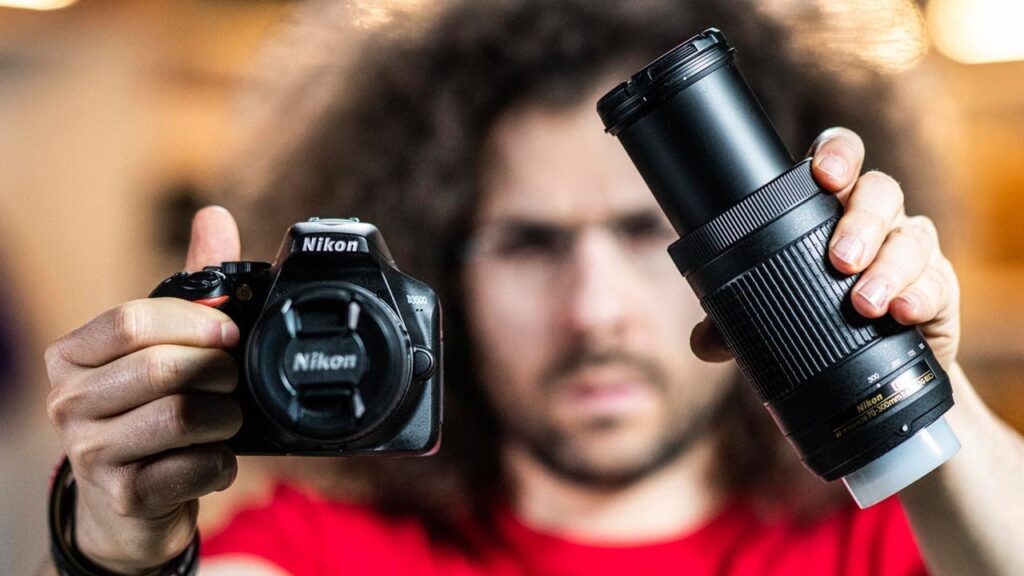
The Nikon D3500 is an entry-level DSLR camera that’s perfect for beginners. Despite being affordable, it delivers excellent image quality with its 24.2MP APS-C sensor. It’s lightweight, easy to use, and has a long battery life, making it great for travel and daily use. The D3500’s intuitive interface allows new photographers to learn quickly and capture stunning images.
Best Compact Camera: Canon PowerShot G7 X Mark III
For those who want a camera that’s small yet powerful, the Canon PowerShot G7 X Mark III is an ideal choice. This compact camera boasts a 20.1MP 1-inch sensor, which offers impressive image quality for its size. It’s perfect for vlogs, street photography, and travel photography. The G7 X Mark III also features 4K video recording and a flip-up screen for selfies and video blogging.
Tips for Getting the Most Out of Your Camera:
No matter what camera you choose, here are some tips to help you maximize your photography potential:
- Learn Your Camera Settings: Understanding your camera’s settings, such as aperture, shutter speed, and ISO, is crucial for capturing great images. Spend time experimenting with these settings to learn how they impact your photos.
- Use the Right Lens: A high-quality lens can elevate your photography significantly. Consider investing in lenses that suit your style, whether you’re shooting portraits, landscapes, or macro photography.
- Focus on Composition: Great photography is not just about the camera—it’s also about composition. Use techniques like the rule of thirds, leading lines, and framing to create more dynamic and visually appealing images.
- Invest in Editing Software: Post-processing can turn a good photo into a great one. Software like Adobe Lightroom or Photoshop allows you to enhance your photos by adjusting exposure, colors, and sharpness.
FAQ’s
1. What camera is best for beginner photographers?
The Nikon D3500 and Canon EOS Rebel T7 are great entry-level DSLR cameras. They are user-friendly, affordable, and provide excellent image quality. For those looking for a mirrorless option, the Sony Alpha A6000 is another solid choice for beginners.
2. How important is autofocus in a camera?
Autofocus is crucial for capturing sharp images, especially in fast-moving situations like sports or wildlife photography. Cameras with fast and accurate autofocus systems, such as the Sony A7 III, help ensure that your subjects are in focus, even in dynamic environments.
3. Can I use any lens with my camera?
Not all lenses are compatible with every camera. Cameras have specific lens mounts, so it’s essential to choose lenses that match your camera’s mount type. For instance, Canon cameras use EF lenses, while Sony mirrorless cameras use E-mount lenses.
4. Should I buy a camera with 4K video capabilities?
If you plan to shoot videos, a camera with 4K video recording, like the Sony A7 III or Canon EOS 5D Mark IV, is a good choice. 4K provides better video quality and more flexibility when editing, especially if you want to crop or reframe your footage.
5. Do I need to invest in editing software for my photos?
While editing software isn’t required to take good photos, it can significantly enhance the quality of your images. Software like Adobe Lightroom or Photoshop allows you to adjust exposure, colors, and sharpness, helping to bring out the best in your photos.
Conclusion:
Choosing the right camera for photography depends on your skill level and needs. Whether you’re a beginner looking for an affordable option or a professional needing advanced features, there are great choices available. Prioritize factors like sensor size, autofocus, and lens compatibility to ensure you select a camera that suits your photography style and goals.

